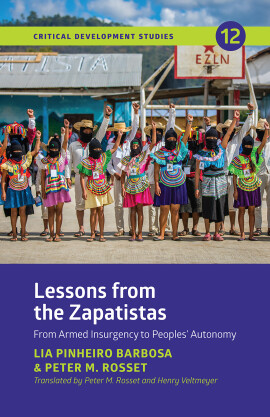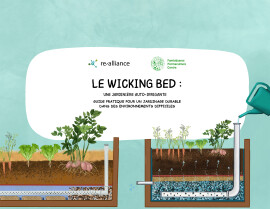
Fertile Ground
Scaling agroecology from the ground up
There are about 2.5 billion people in the world, on 500 million farms, involved with smallholder family agriculture and food production. Their creative capacity to farm productively and sustainably with nature, instead of against it, is perhaps the most powerful force that can be unleashed to overcome the interlinking challenges of hunger, poverty, climate change, and environmental degradation. This is the essence of agroecology.
Numerous books and reports detail the negative consequences of our industrialized agricultural system. Many also document the nature, viability, and benefits of agroecology. Yet scaling agroecology and changing our agricultural and food systems remains a great challenge. How do we accomplish that? Fertile Ground seeks to answer that question by drawing on grounded practice and research.
At the heart of this book are nine case studies from different contexts: Brazil, Honduras, Haiti, Ecuador, the United States, Mali, Burkina Faso, Ghana, and the Netherlands. They describe practical, ground up, and often challenging processes to combine the elements of practice, science, and movement to scale agroecology. From these cases, lessons, strategies, and recommendations are shaped to share with others. This book brings forward examples of organizations of family farmers acting as agents of change, engaging in continuous agricultural innovation, rather than as passive recipients and consumers of inputs. They contribute to the creation of healthier farming and food systems, as well as to more democratic, just, and sustainable societies.
Published: 2023
Pages: 228
eBook: 9781788533874
Paperback: 9781788533850
Hardback: 9781788533867
Numerous books and reports detail the negative consequences of our industrialized agricultural system. Many also document the nature, viability, and benefits of agroecology. Yet scaling agroecology and changing our agricultural and food systems remains a great challenge. How do we accomplish that? Fertile Ground seeks to answer that question by drawing on grounded practice and research.
At the heart of this book are nine case studies from different contexts: Brazil, Honduras, Haiti, Ecuador, the United States, Mali, Burkina Faso, Ghana, and the Netherlands. They describe practical, ground up, and often challenging processes to combine the elements of practice, science, and movement to scale agroecology. From these cases, lessons, strategies, and recommendations are shaped to share with others. This book brings forward examples of organizations of family farmers acting as agents of change, engaging in continuous agricultural innovation, rather than as passive recipients and consumers of inputs. They contribute to the creation of healthier farming and food systems, as well as to more democratic, just, and sustainable societies.
| Introduction: Pathways from the crisis to solutions | |||
|---|---|---|---|
| Steve Brescia | |||
| 1. Peasant innovation and agroecology in Brazil’s semi-arid region | |||
| Paulo F. Petersen | |||
| 2. Honduras: Building a national agroecology movement against the odds | |||
| Edwin Escoto and Steve Brescia | |||
| 3. A foundation for Haiti’s future: Peasant associations and agroecology | |||
| Cantave Jean-Baptiste and Steve Brescia | |||
| 4. Local markets, native seeds, and alliances for better food systems through agroecology in Ecuador | |||
| Pedro J. Oyarzún and Ross M. Borja | |||
| 5. Agroecology and food system change: A case study of strawberries in California, The United States of America | |||
| Steve Gliessman | |||
| 6. West Africa context: Challenges facing family farmers in the Sahel | |||
| Peter Gubbels and Steve Brescia | |||
| 7. Regenerating trees, landscapes and livelihoods in Mali: A case of | |||
| farmer-managed transformation | |||
| Pierre Dembélé, Drissa Gana, Peter Gubbels, and Steve Brescia | |||
| 8. From oases to landscapes of success: Accelerating agroecological | |||
| innovation in Burkina Faso | |||
| Fatoumata Batta and Tsuamba Bourgou | |||
| 9. From community to national agroecology movements in Ghana | |||
| Bernard Guri and Daniel Banuoko | |||
| 10. Closed-loop farming and cooperative innovation in Netherlands’ Northern Frisian Woodlands | |||
| Leonardo van den Berg, Henk Kieft, and Attje Meekma | |||
| Conclusion: Supporting a groundswell of agroecological innovation | |||
| Steve Brescia |
'Agroecology has been viewed as a niche intervention for small landholders for decades. It has been debated that mainstreaming agroecology is paradoxical due to the contradiction between upscaling niche innovations to produce more food in sustainable ways and the concerns for a loss of core values and principles of agroecology in the mainstreaming process. This paradoxical nature has been unbundled ever since, as examples from across the world have started emerging that it is scalable across contiguous landscapes – bringing in the community of practitioners (esp. women, small and marginal farmers, youth, and indigenous communities) in the centrality of a critical knowledge-intensive systems. This book takes you through the various facets of agroecology across the globe and brings home a key point that the universal yet contextual nature of agroecology is scalable across all spectrums.'
Swati Renduchintala, Associate Scientist, CIFOR-ICRAF, Program Manager - Andhra Pradesh Community-managed Natural farming programme
'Fertile Ground provides us with a global testimony of key agroecological experiences from the Americas, Africa and Europe. As interest in agroecology grows, there is a need to critically assess the evidence of its potential to fully integrate science, practice and social movements to build more sustainable food systems. This volume represents a pivotal contribution to achieving this goal.'
V. Ernesto Méndez, Ph.D., Professor of Agroecology & Environmental Studies, University of Vermont
'If the food system is made sustainable, it’ll be because of examples like those in this book. Mark Twain has some words for Big Ag: ‘Few things are harder to put up with than the annoyance of a good example.’ This book is filled with good examples that demonstrate the profound potential for agroecology to address everything from climate change to domestic violence. These stories aren’t just inspiration – they’re ammunition for a debate about the future of food and farming.'
Raj Patel, activist; academic; author of Stuffed and Starved (2007)
'Pedro Sanchez and Dennis Garrity, two of the world’s most prominent scientists and both of them ex-CEOs of ICRAF, recently agreed in an article in the Scientific American that the judicious use of plants that fertilize the soil (what are often called “green manure/cover crops”) are capable of not only maintaining, but of increasing, soil fertility over the long haul. They went on to say that this fact provided tremendous hope for smallholder African farmers. This is an amazing about-face for the scientific establishment, and a major admission that agroecology can accomplish a lot more than most people had ever thought possible. I believe that agroecology will be the direction of agricultural production in the developing world. This book is one of the best books around to show us, in very practical ways, how to successfully move in that direction.'
Roland Bunch, sustainable agriculture consultant; author of Two Ears of Corn: A Guide to People-Centered Agricultural Improvement (1982)
Women’s associations in Cotopaxi, Ecuador: from rights to agroecological markets
Borja, R.
Blare, T.
Reimão, M.
Padilla, G.
Oyarzún, P.
Agroecology and Sustainable Food Systems, Vol. 48 (2024), Iss. 6 P.848
https://doi.org/10.1080/21683565.2024.2341238 [Citations: 0]





